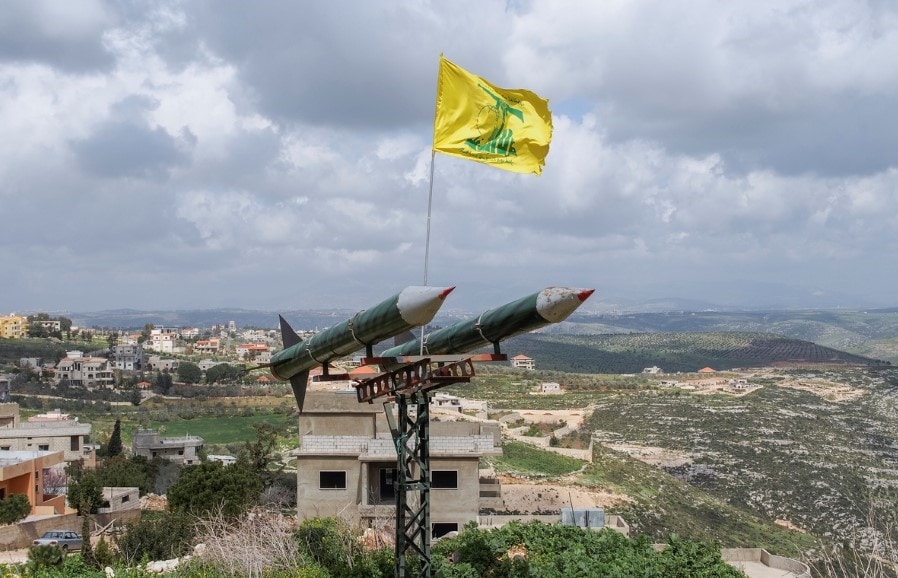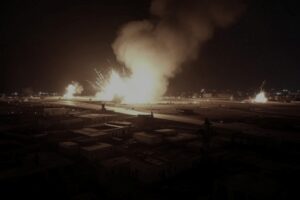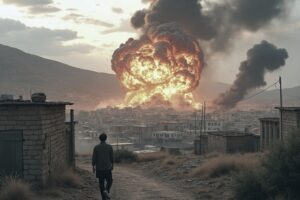Israeli analysts warn that risk of war with Hezbollah may be higher than suggested by IDF intelligence assessment.

The IDF says that Hezbollah fears an all-out war with Israel but could instigate a limited clash with a pinpoint strike on soldiers. The army’s annual estimate assessed that Hezbollah is determined to restore the deterrence equation, without triggering a major conflict.
But what if Israel is wrong?
Several analysts are pointing to problems in the IDF analysis of Hezbollah. They say that the army may be misjudging Hezbollah’s logic and intentions. If that’s the case, the risk of a large war could be higher than projected.
Limited incidents could quickly spiral out of control and escalate into major fighting, as happened in the 2006 war. The dynamics of such conflicts are hard to predict, military journalist Alex Fishman wrote. The IDF estimate that Hezbollah only wants a limited clash therefore means little, he said.
Nobody could tell whether an episode such as the downing of an Israeli aircraft could spark a major clash, Fishman argued. This means that the IDF must remain in a constant state of readiness for an unexpected flareup, he concluded.
Arab affairs analyst Shimrit Meir is even blunter. The IDF estimate reflects Israel’s way of thinking but not necessarily Hezbollah’s view, she wrote in Yediot Aharonot daily. Hezbollah chief Nasrallah stated that he does not subscribe to Israel’s plans for a limited battle, but the army prefers to interpret his words selectively, she said.
Hezbollah expert Shimon Shapira made a similar point earlier, stressing that the group does not accept Israel’s terms for a conflict. An assault on key Hezbollah assets will trigger a harsh response, including missile attacks on Tel Aviv, he warned.
Meir added that Israel and Hezbollah could have trouble restraining their actions. Hundreds of fatalities in IDF bombings or a Hezbollah raid on an Israeli community will push both sides to hit harder, she predicted. Both Nasrallah and IDF chief Kochavi are eager to claim victory and wish to avoid an outcome that is open to interpretation, she noted.
Strategic shift by Iran axis?
Meir is generally critical of the IDF’s annual estimate, which she says has turned into a cautious assessment that offers little added value. The 2021 report reads like a continuation of 2020 trends and fails to consider the dramatic change in US policy under President Biden, she wrote.
Meanwhile, strategic analyst Omer Dank raises more troubling questions about the IDF analysis of Hezbollah. He, too, noted that days of battle could lead to the eruption of an all-out war. Hezbollah’s willingness to take this risk for the first time in years seems to reflect a “strategic shift,” he said.
The IDF’s estimate suggests that Hezbollah’s and Iran’s interests have changed, dank wrote, adding that this requires further exploration and analysis. Most importantly, Israel should be asking what Nasrallah wishes to achieve and why this merits such a significant risk in his view.
There could be several answers to this question. One possibility is that Nasrallah believes that any conflict will end before the IDF can significantly harm Hezbollah. The international community will likely intervene, and Israel may seek a quick truce given the domestic challenges it faces, Meir wrote in her analysis.
Another option is that the Iran axis sees an opportunity to hurt Israel badly and is willing to pay a price for this. Heavy missile fire targeting the home front as the country struggles with political instability and the COVID-19 fallout could deepen the crisis and gravely erode Israel’s image.
One way or another, deciphering Nasrallah’s calculations and Hezbollah’s intentions could be trickier than expected. As tensions continue to build up on the Israel-Iran front, the northern border will remain explosive for the foreseeable future.


